Definition of Thyroid Nodule
The thyroid gland is located in the lower front of the neck, below the voice box (larynx) and above the collarbones. A thyroid nodule is a lump in or on the thyroid gland. Thyroid nodules are detected in about 6 percent of women and 1-2 percent of men; they occur 10 times as often in older individuals but are usually not diagnosed.
Anatomy of the thyroid gland
Any time a lump is discovered in thyroid tissue, the possibility of malignancy (cancer) must be considered. More than 95 percent of thyroid nodules are benign (noncancerous), but tests are needed to determine if a nodule is cancerous.
Thyroid Nodules
Benign nodules include:
Multinodular goiter, also called a nontoxic goiter. The word goiter means the thyroid gland has grown too large. This usually happens when the pituitary gland in the brain creates too much thyroid stimulating hormone. If the goiter is small, the problem may be treated with thyroid hormone pills. Surgery is needed if the goiter is large or does not stop growing after taking thyroid hormones. A large thyroid gland can press against the trachea (windpipe) or esophagus (food tube) and cause difficulty breathing or eating.
Benign follicular adenomas, the word follicular means the cells look like a group of small circles under a microscope. If the follicular cells are contained within the nodule, the condition is called benign. If the cells have invaded the surrounding tissue, the diagnosis is cancer.
Thyroid cysts are nodules filled with fluid. If a nodule has both fluid and solid parts, it is called a complex nodule. They need to be surgically removed if they cause neck pain or difficulty swallowing.
Epidemiology of thyroid nodule
Thyroid nodules can be palpated in 4% to 7% of adults. However, they are found incidentally in up to 40% of patients who undergo ultrasonography of the neck, and in 36% to 50% of persons at autopsy. Some studies estimate that 20% to 76% of the population has at least one thyroid nodule.
Types of Thyroid Nodule
There are different types of thyroid nodules:
Colloid nodules: These are one or more overgrowths of normal thyroid tissue. These growths are benign (not cancer). They may grow large, but they do not spread beyond the thyroid gland.
Thyroid cysts: These are growths that are filled with fluid or partly solid and partly filled with fluid.
Inflammatory nodules: These nodules develop as a result of chronic (long-term) inflammation (swelling) of the thyroid gland. These growths may or may not cause pain.
Multinodular goiter: Sometimes an enlarged thyroid (goiter) is made up of many nodules (which are usually benign).
Hyperfunctioning thyroid nodules: These nodules autonomously produce thyroid hormone without regard for normal feedback control mechanisms, which may lead to the development of hyperthyroidism. Hyperthyroidism can affect the heart and cause such problems as sudden cardiac arrest, high blood pressure, arrhythmias (abnormal heart rhythm), osteoporosis and other health problems.
Thyroid cancer: Less than 5 percent of thyroid nodules are cancerous.
Causes and Risk factors
While we don’t fully understand why children and adolescents develop thyroid nodules, there are several factors that increase the risk of being diagnosed with a thyroid nodule. These include:
Age: The risk of developing a thyroid nodule increases with age
Gender: Females are at increased risk of developing thyroid nodules compared to males
Family history of thyroid disease (thyroid nodules or thyroid cancer)
Personal history of thyroid disease
Radiation exposure: Both environmental (rare) and medical exposure to radiation, for evaluation and treatment (for example, a previous history of cancer that was treated with ionizing radiation)
Iodine insufficiency (iodine is needed for the production of thyroid hormone)
Thyroid Nodule symptoms
Thyroid nodule patients usually have no symptoms, but when they do have symptoms they are most commonly:
- A lump in the neck (thyroid)
- Uncomfortable pressure sensation on the breathing tube (trachea)
- A sense of feeling like they need to swallow something or difficulty swallowing
- Discomfort in the neck
A lump in the neck
Thyroid nodules may also rarely produce the thyroid hormone, thyroxine, in excess. This is uncommon but the reason why all patients with thyroid nodules should have a blood test for thyroid stimulating hormone (TSH). Thyroid nodules that produce extra thyroid hormone can cause symptoms of hyperthyroidism which include:
- Unexplained weight loss
- Heat intolerance
- Tremor
- Nervousness
- Rapid or irregular heart rate
Complications of Thyroid Nodule
Complications associated with thyroid nodules include:
Problems swallowing or breathing: Large nodules or a multinodular goiter- an enlargement of the thyroid gland containing several distinct nodules can interfere with swallowing or breathing.
Hyperthyroidism: Problems can occur when a nodule or goiter produces thyroid hormone, leading to hyperthyroidism. Hyperthyroidism can result in weight loss, muscle weakness, heat intolerance, and anxiousness or irritability.
Potential complications of hyperthyroidism include an irregular heartbeat (atrial fibrillation); weak bones (osteoporosis); and thyrotoxic crisis, a sudden and potentially life-threatening intensification of signs and symptoms that requires immediate medical care.
Problems associated with thyroid cancer: If a thyroid nodule is cancerous, surgery is usually required. Generally, most or all of your thyroid gland is removed, after which you’ll need to take thyroid hormone replacement therapy for the rest of your life.
Diagnosis and test
Most people don’t find thyroid nodules on their own, because the nodules aren’t easy to feel and don’t usually cause symptoms. Your doctor may have found a nodule on your thyroid when you were having a CT scan or ultrasound for another reason. Your doctor will do a physical examination and will ask you if you have symptoms or any changes in how you’ve been feeling.
You may have tests to see how well your thyroid is working and to make sure the nodule is not cancer. Possible tests include:
- A blood test to check the level of thyroid hormone in your body.
- A thyroid scan, which uses radioactive material and a camera to get information about your thyroid gland and nodules. This is done if the level of thyroid hormone is high. Another test called an uptake scan can be done at the same time to see how well your thyroid gland is working.
- Fine-needle aspiration, which removes a small amount of material from the nodule. The material is checked for cancer cells.
- Thyroid ultrasound, to see the number and size of nodules or to locate the nodule for fine-needle aspiration.
Treatment and medications
The appropriate thyroid nodule treatment depends upon the type of thyroid nodule that is found.
Benign thyroid nodules
Benign thyroid nodules usually develop as a result of an overgrowth of normal thyroid tissue. Surgery is not usually recommended, and the thyroid nodule can be monitored over time. If the thyroid nodule grows, a repeat biopsy or surgery may be recommended. Some surgeons recommend excision of nodules over 4 cm.
Suppressive (thyroid hormone) treatment
If a thyroid nodule is not cancerous, but the nodule is large, some clinicians will suggest a trial of thyroid hormone (thyroxine [T4]) to shrink the nodule; this is called suppressive treatment. The American Thyroid Association guidelines do not recommend this treatment, because only a small percentage of nodules shrink and suppressive therapy may have side effects (eg, abnormal heart rhythm or loss of calcium from bone). Thyroid hormone levels should be monitored carefully during suppressive treatment.
Malignant thyroid nodules (thyroid cancer)
Only approximately 5 percent of all thyroid nodules are malignant. Most patients with thyroid cancer have an excellent chance for cure or long-term survival. The treatment of thyroid cancer will depend on the type of cancer. Thyroid cancers require surgical removal of the thyroid gland and sometimes one or more treatments with radioiodine, followed by thyroid hormone (T4) suppressive therapy.
Suspicious for malignancy
Nodules in this category have a 50 to 75 percent risk of malignancy. Patients with nodules that are suspicious for malignancy frequently have a lobectomy or a total thyroidectomy because the chance that the nodule is a cancer is higher than the chance it is benign.
Follicular neoplasm
The scan report of patients with biopsies shows follicular neoplasm, especially when the thyroid-stimulating hormone (TSH) is in the lower portion of the normal range. From 15 to 20 percent of follicular neoplasms prove to be cancer. Thus, if the scan shows a cold nodule or the TSH is not low, further evaluation with molecular markers, where available, is recommended. Molecular markers (assessed on the fine-needle aspirate) are used to select low-risk nodules for observation rather than surgery.
These tests, if negative, are still associated with a 3 to 5 percent risk of cancer, while, if positive, the risk of cancer exceeds 45 percent, depending on the test used. If surgery is necessary, a hemithyroidectomy or a total thyroidectomy may be appropriate depending on the results of the molecular testing, the size of the nodule, and patient preference. Thyroid nodules that absorb the radioiodine (autonomous or “hot” nodule) are usually not cancerous, and treatment depends upon thyroid function tests and other factors.
Fine-Needle Aspiration (FNA)
Most patients who have nodules with atypical cells require repeat fine-needle aspiration (FNA). The optimal treatment depends upon patient factors, such as the risk for thyroid cancer, and the FNA (including molecular testing) and ultrasound features of the nodule. Molecular markers are frequently used to select low-risk nodules for observation rather than surgery. Most of these tests, if negative, are still associated with a 3 to 5 percent risk of malignancy, while, if positive, the risk of cancer exceeds 45 percent, depending on the test used.
Non-diagnostic
A nondiagnostic biopsy does not have enough cells for interpretation. It should not be considered a negative biopsy. For patients with non-diagnostic FNA biopsies, the FNA should be repeated using ultrasound guidance.
Autonomous thyroid nodules
Some thyroid nodules produce thyroid hormone, similar to the thyroid gland, but do not respond to the body’s hormonal controls. These nodules are called autonomous thyroid nodules. They are almost always benign, but they can overproduce thyroid hormone, leading to hyperthyroidism.
If you have an autonomous nodule and high levels of thyroid hormone, you will usually be advised to undergo surgery to remove the thyroid nodule, or to undergo radioactive iodine treatment to destroy the nodule. Long-term treatment with the antithyroid drug methimazole is also an option, although methimazole cannot be taken during pregnancy.
- If you have an autonomous nodule and normal thyroid function or minimal hyperthyroidism, the appropriate treatment will depend on your age and other health factors.
- In young adults, autonomous nodules may be monitored over time.
In older adults, radioactive iodine treatment or surgery may be recommended because high thyroid hormone levels pose a risk of abnormal heart rhythm (atrial fibrillation) and bone loss (osteoporosis).
Cystic thyroid nodules
Cystic thyroid nodules are usually benign nodules that have filled with fluid. These nodules may simply collapse when the fluid is removed. Cystic nodules are usually monitored for changes. If the cyst reforms or bleeds more than once, surgery can be performed to remove the thyroid nodule. (See “Cystic thyroid nodules”.)
Thyroid Nodule prevention
There’s no way to prevent the development of a thyroid nodule. If you’re diagnosed with a thyroid nodule, your endocrinologist will take steps to remove or destroy it or simply monitor it on an ongoing basis. The majority of noncancerous nodules aren’t harmful, and many people don’t need treatment.
 Diseases Treatments Dictionary This is complete solution to read all diseases treatments Which covers Prevention, Causes, Symptoms, Medical Terms, Drugs, Prescription, Natural Remedies with cures and Treatments. Most of the common diseases were listed in names, split with categories.
Diseases Treatments Dictionary This is complete solution to read all diseases treatments Which covers Prevention, Causes, Symptoms, Medical Terms, Drugs, Prescription, Natural Remedies with cures and Treatments. Most of the common diseases were listed in names, split with categories.
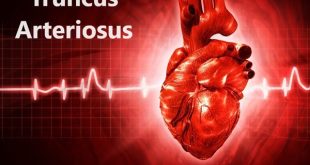
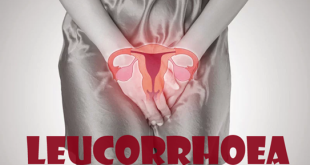
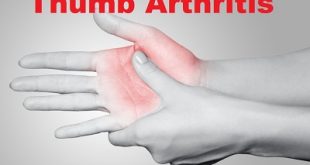
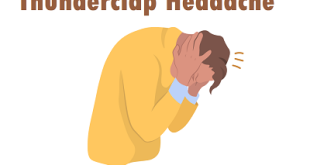
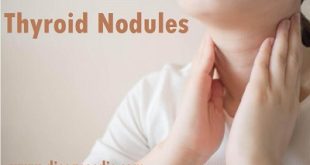

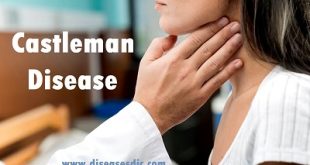

Tell me someone what’s the diet of thyroid person so we can improve the overall health
You can make sure you eat enough food that contains iodine (table salt, dairy products, seafood, meat, etc.), which can prevent one cause of thyroid nodules.
that is great information to know about diseases….i would like to read about transverse mylietus in future
thank you
xx
Kindly read about transverse myelitis through this link http://diseasesdic.com/transverse-myelitis-tm-causes-symptoms-complications-and-treatment/
It was useful information for a new surgical Doctor. I wish I could be a doctor to treat everyone, but unfortunately I am the boss of my family and have to find feed and other essentially needed for my home. but hope to be done my children to be educated if the God is willing to us. Thanks
My wife underwent surgery to remove thyroid nodules some 49 years ago. Recently it started to appear. The specialist after a thorough check confirmed it is non cancerous and inactive and did not give any medication. The swell start to increase. Please advise what type of medication she can take to bring down the swell. Thanks & regards.
Kindly consult a doctor for appropriate prescription of drugs.
very much informative, clears my doubts, I always prefer endocrinologist for thyroid problem.
thyroid disease is very common and can surely treatable, its our responsibility to diagnose the disease as early as possible.
I have been diagnosed with hyperthyroid for 13yaer and was oprate and the thyroid was remove, put still am have systom of agrassive and feeling of uneasy pls kindly help. what can I do?
Consult a doctor again for an appropriate prescription of treatment method.
sir i have follicular neoplasm in my thyroid gland. what can i do suggest pls.
Please consult a doctor to get treated with this problem.
Please tell me how to reduce thairoid effects
Take continuous thyroid medications prescribed by a doctor. Maintain a proper diet and physical fit.
l am a hypo thyroid sick since 1914 to till now.my blood TSH is present 1.2 micrograms per ml . l need Thyrox 50 .My Question
what can l stopp this medicine or ongoing
Thyroid medications should be taken to maintain the TSH in the baseline. There is no cure for the Thyroid sick but it can be controlled under prolonged medication. We strongly recommend you to get physician advice in order to continue with the medicine.